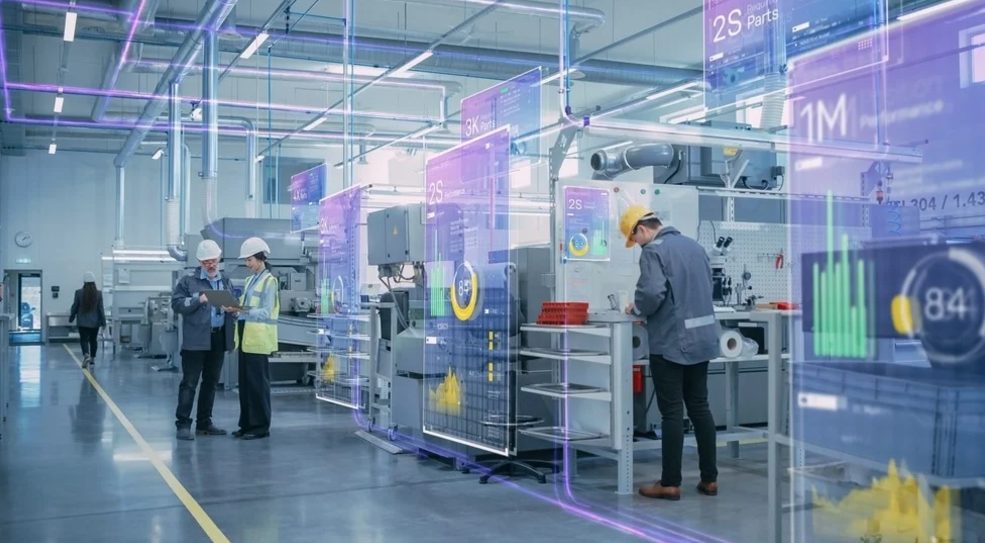Internet of Things (IoT) in Manufacturing

The Internet of Things (IoT) refers to network-connected devices that lack a web graphical user interface but are equipped with sensors and technology to exchange data. These devices, such as smart gadgets and personal assistants, play a crucial role in improving personal and organizational operations. In manufacturing, IoT enables businesses to monitor activities, track progress, and make data-driven decisions to improve operational efficiency. Since the 1960s, IoT has enhanced manufacturing, starting with General Motors’ use of programmable logic controllers (PLCs), and has evolved significantly over the decades. By 1999, the term "Internet of Things" was coined to describe devices that connect to the internet without a GUI.
In the manufacturing sector, IoT has become vital for optimizing processes, improving asset management, and predicting maintenance needs. The integration of IoT helps companies save costs through better inventory control, reduced machine downtime, and increased energy efficiency. These devices can automate tasks, streamline production, and shorten time-to-market, all of which contribute to enhanced productivity and revenue. IoT tools also play a crucial role in workplace safety by monitoring workers' health and managing the risks associated with hazardous materials. By leveraging IoT technology, companies can ensure safer, more efficient manufacturing environments.
Examples of IoT applications in manufacturing include Kaeser Kompressoren’s use of digital twins, which provide real-time operational data for equipment, and Armal’s remote monitoring system, which reduces energy costs. Amazon has also used IoT for logistics management, improving delivery efficiency and reducing costs. The future of IoT in manufacturing looks promising, with market growth expected to rise from $33.2 billion in 2020 to $53.8 billion by 2025. As more companies adopt IoT technology, manufacturing processes will become increasingly automated and intelligent, transforming traditional factories into smart, efficient production spaces.
Source: https://www.azosensors.com/article.aspx?ArticleID=2864